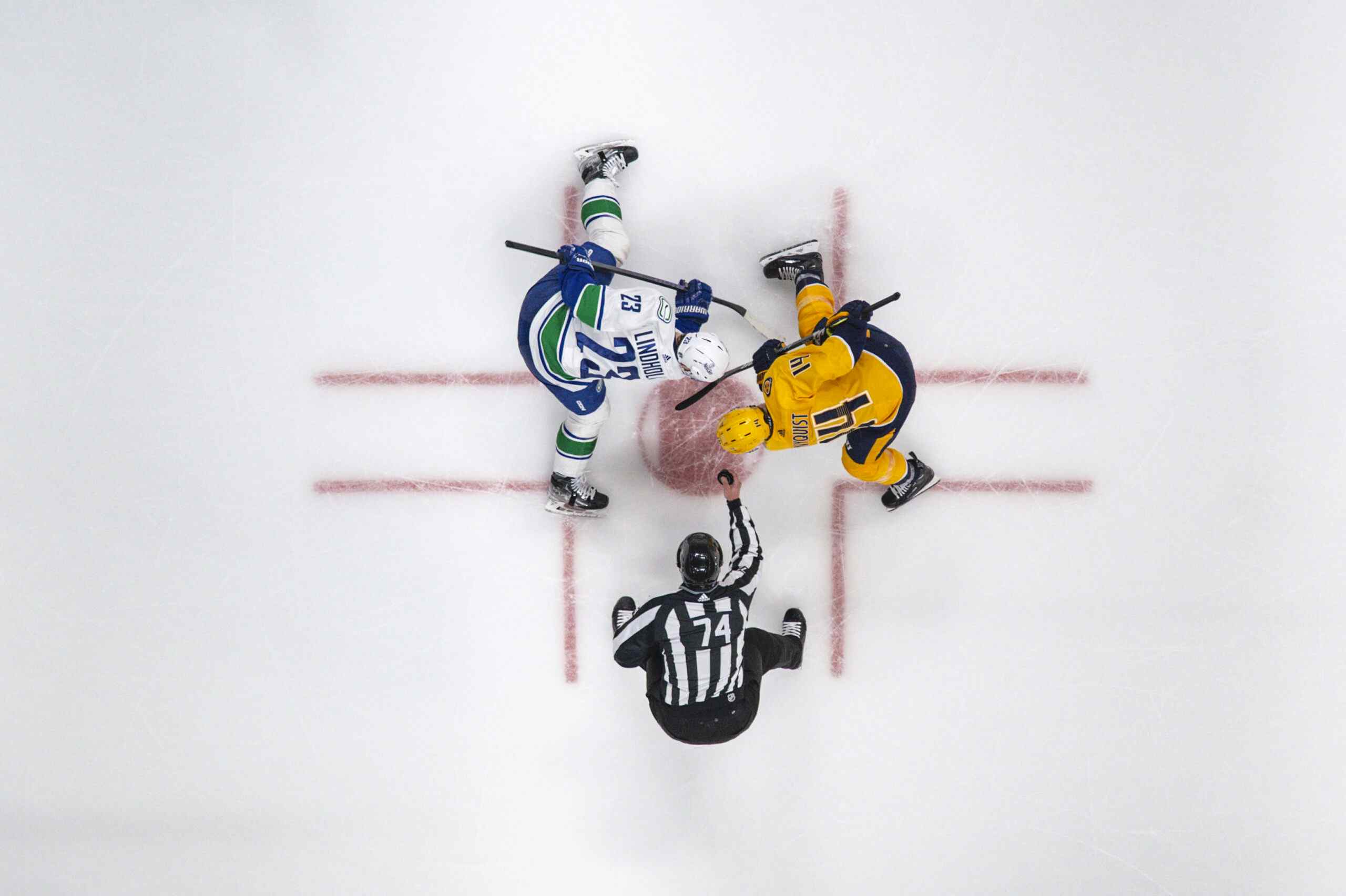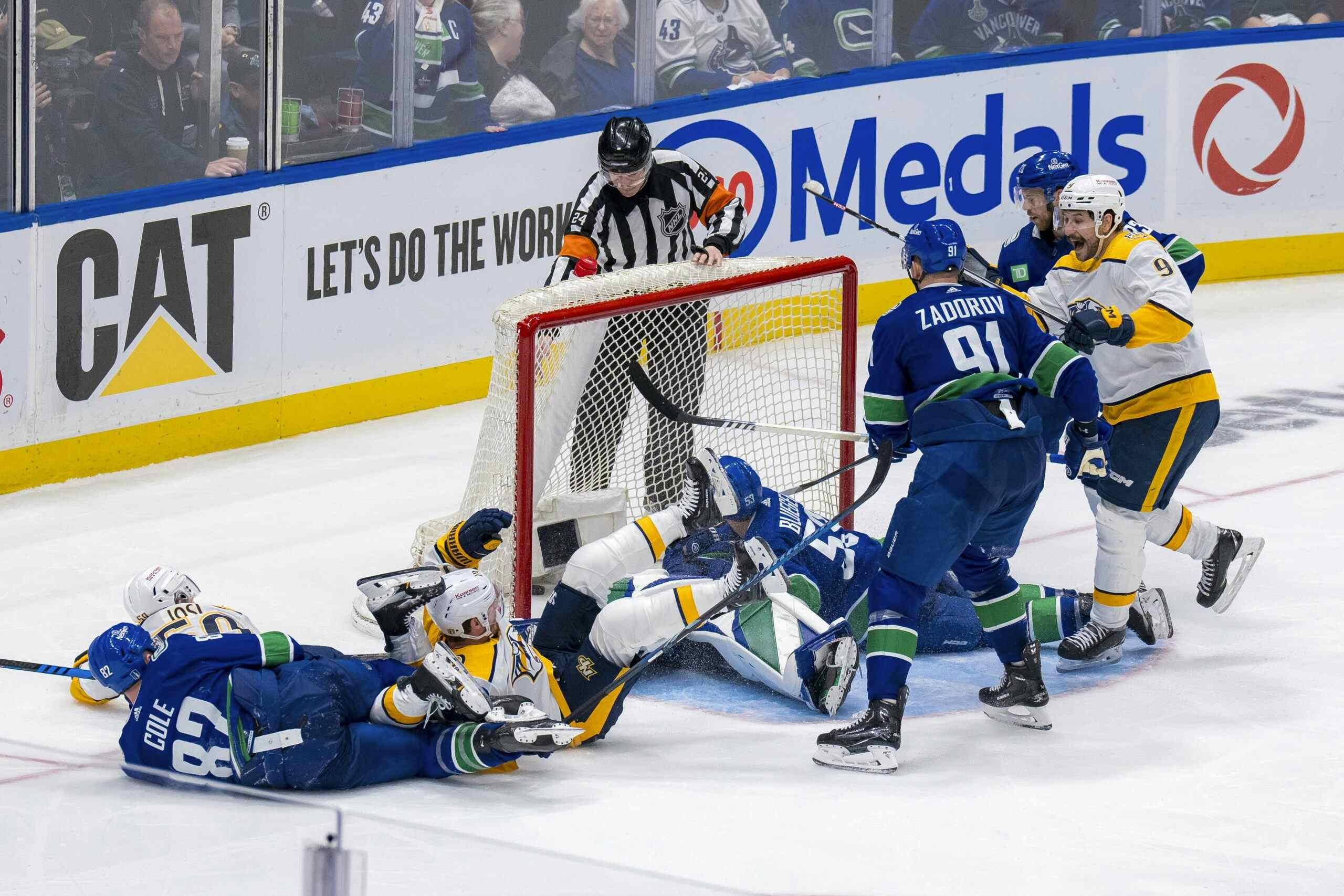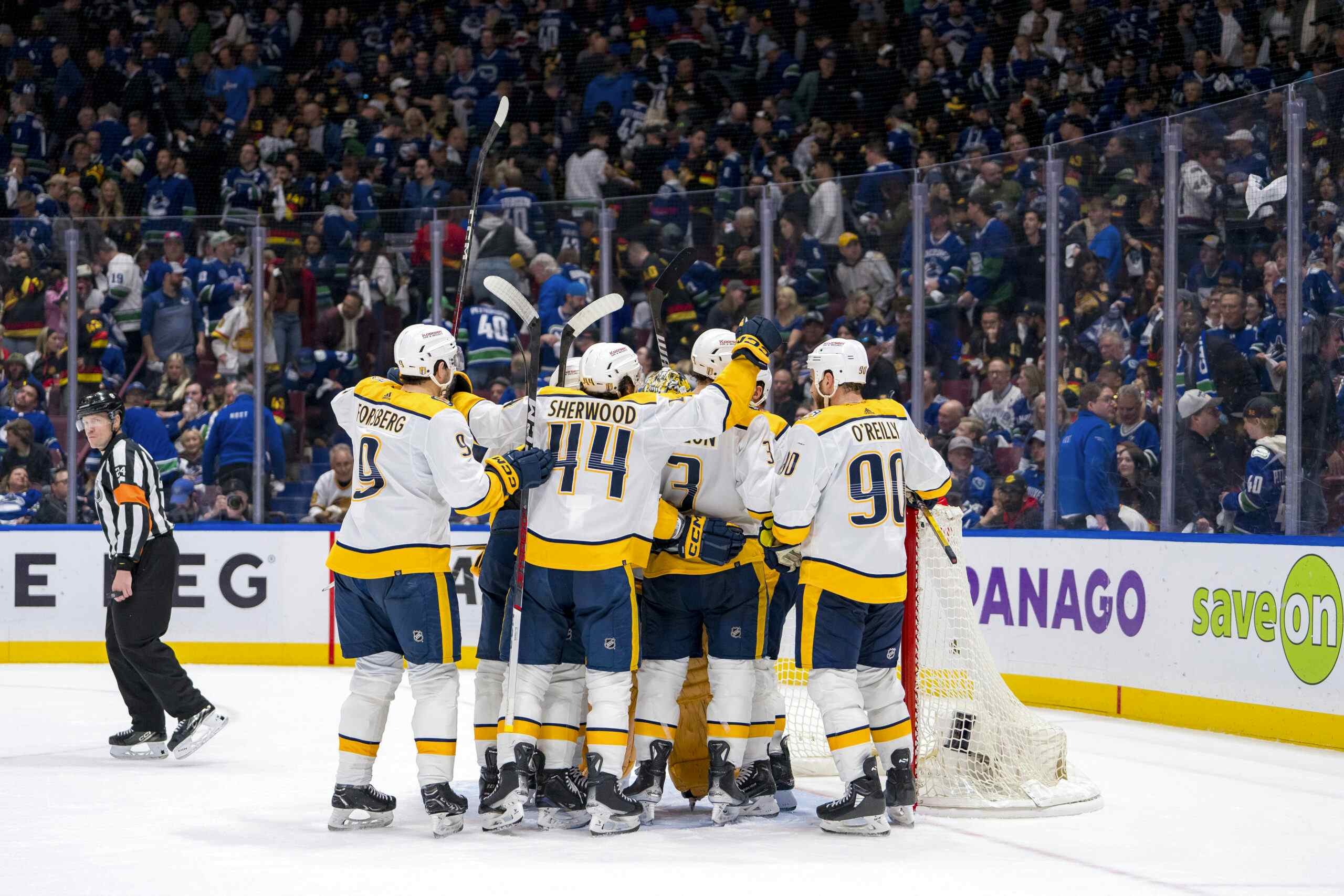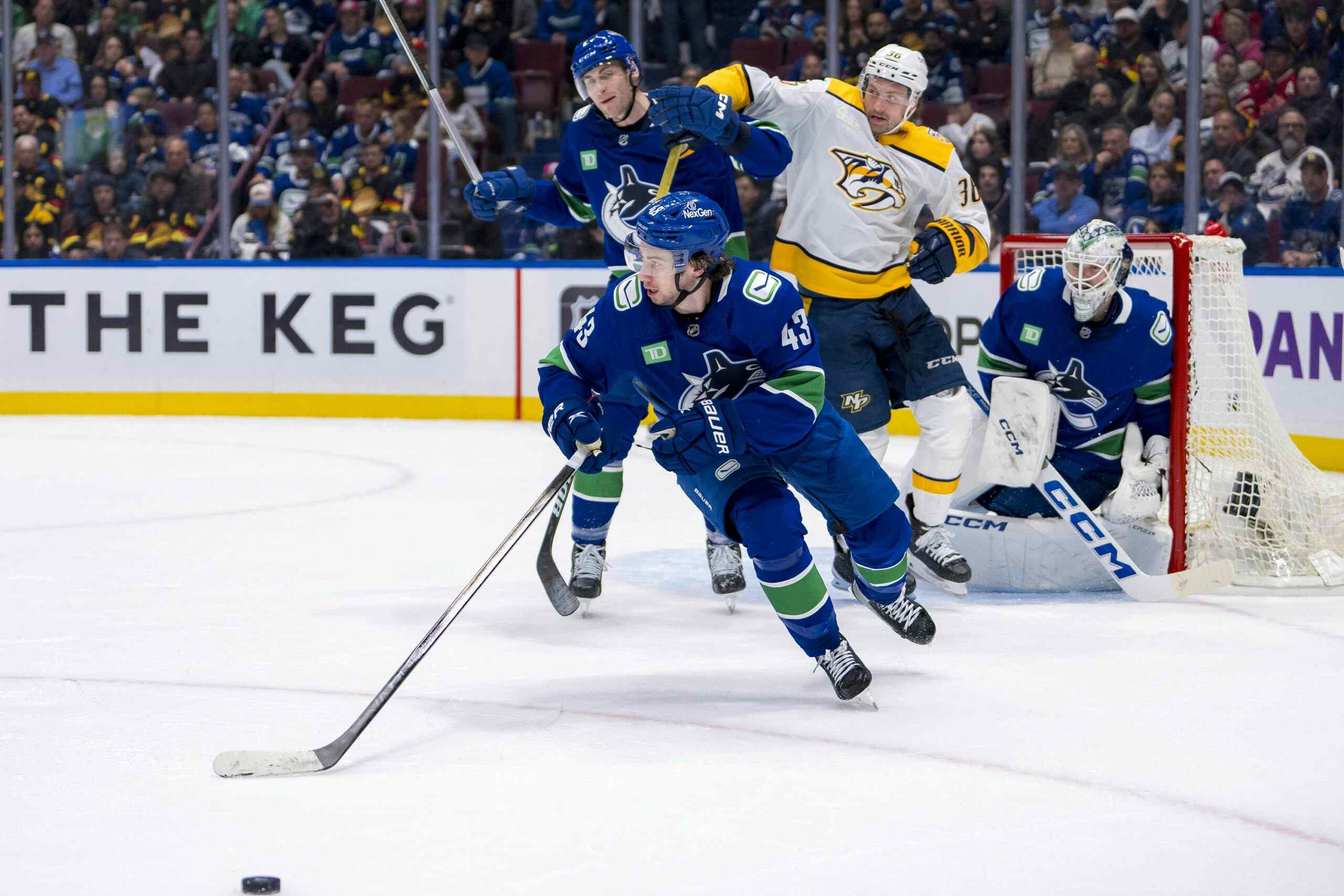Nobody Benefits from Jayson Megna’s Exorbitant Ice Time

By J.D. Burke
7 years agoIf you have a glass of wine daily after work, most studies tend to suggest that’s good for your short and long-term health. Drink the whole bottle, though, and you’ve got a serious problem. It’s a matter of moderation — discipline, even.
One could draw a striking parallel between the findings in those studies and the Canucks’ usage of Jayson Megna. Canucks general manager Jim Benning signed Megna early in the off-season to be a lead horse in Utica and a depth call-up option. Vancouver called up Megna in late October, and they’ve gone back to the bottle again and again and again and…
Had Canucks head coach Willie Desjardins read Megna User’s Manual, this wouldn’t be an issue. Megna would get his games, and limited ice-time, as injuries made that a necessity, and in all likelihood he would have a more or less negligible impact on the Canucks chances of winning.
Instead, we’re over 50 games into the Megna Experiment, and rather than seeing his role diminish as the Canucks publicly state their desire for an infusion of youth down the stretch, we’re witness to the exact opposite more often than not.
Last night, for example, Desjardins played Reid Boucher a hair under eight and a half minutes at even strength. Conversely, Megna, 27-years-old, played well over thirteen minutes. For added context, Henrik Sedin didn’t crest the thirteen mark. That’s a continuation of an ugly trend.
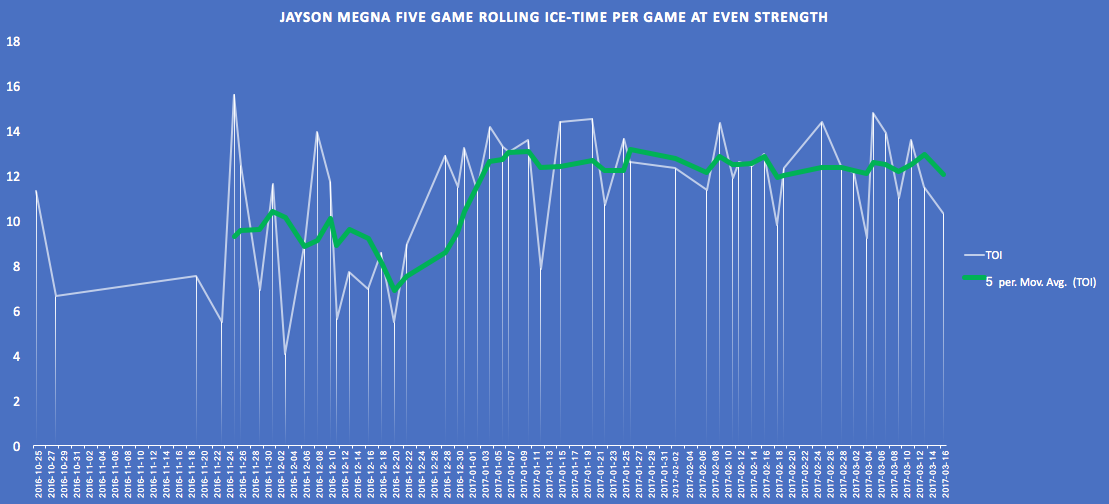
And for all the ice-time the Canucks have invested in Megna, he’s yielded four goals in return. In his last 41 games, Megna has but one goal to his credit. In that time, he’s played on each of the Canucks four forward lines and even skated on the first unit power play. The Canucks control a 44.79% score and venue adjusted ratio of shot attempts — the second lowest mark among Canucks skaters with ten or more games to their credit.
If you were to look at the 360 forwards to play 400-plus minutes at even strength this season (twelve forwards on each team gets you this number) Megna’s 0.61 points per hour ranks 350th.
You know what they say about doing the same thing over and over again, and expecting different results.
In fairness to Megna, it’s not as though he’s in Desjardins office daily pleading for more ice-time and in higher leverage situations. I didn’t see Megna whispering to Desjardins following the Edmonton Oilers second goal last night, but he was on the ice the very next shift alongside the Sedin twins all the same.
Megna is every bit a victim here as the Canucks fans made to suffer his exorbitant ice time. One could make a fairly compelling argument for Megna’s role having detrimental effects on his career at this stage.
Before joining the Canucks, Megna produced even strength points at a rate of 1.32 points per hour; as a Canuck, that number is 0.61. With Pittsburgh and New York, Megna’s teams controlled 46.13% of venue and score adjusted shot attempts at even strength; as a Canuck, that number is 44.79%.
Certain players benefit from playing in an expanded role. In fact, there are a few players on the Canucks or in their system that have shown in brief glimpses that we might be able to one day count them among those beneficiaries.
Everyone, save Desjardins, knew by game twenty, or thirty, or forty of the Megna experiment that he wasn’t one such player.
Megna is 27-years-old. The cold reality here is that he’s likely left his peak years already, and doesn’t have any dormant talent in need of ice-time as a catalyst to set it loose. I don’t mean to be obtuse, but Megna is what he is at this stage, and that’s not likely to change. He is a thirteenth forward.
Let’s imagine for argument’s sake that the Megna experiment was yielding even acceptable fourth line results — it’s not, but let’s entertain the notion. The Canucks as an organization have nothing to gain by entertaining that experiment in the final eleven games of the season. Nothing.
By playing Megna, though, they limit themselves and their ability to plug into yet untapped potential elsewhere. It’s not just about Boucher. There’s Alexandre Grenier or Joseph LaBate to consider. And Nikolay Goldobin when he returns to the lineup needs to play in a top-six role. If they don’t want to get too radical, they can just allot the surplus ice-time to Bo Horvat’s line — what a notion!
Whatever they choose to do with the excess minutes Megna plays night after futile night, it can’t be less endearing to fans than the current plan. That almost seems impossible, though I don’t want to sound like I’m issuing a challenge.
It’s about selling hope, and a 27-year-old thirteenth forward can’t be the one at the register. Especially when that takes shifts out of the hand of players better suited to that role. It isn’t fair to anyone.
Recent articles from J.D. Burke

